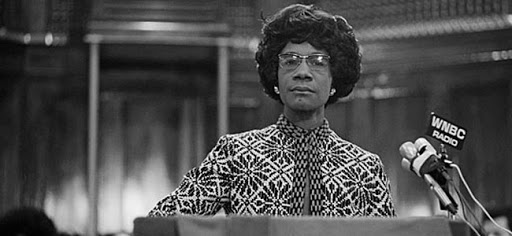Shirley Chisholm was the first black woman elected to the U.S. Congress and the first woman and first African American to run for the Democratic Party’s nomination for president. Until a few months ago it seems she had been slightly forgotten, even with being posthumously awarded the Presidential Medal of Freedom in 2015, but that changed with the announcement that Viola Davis will star in a biopic about her life titled “The Fighting Shirley Chisholm,” which is in production and currently does not have a release date.
Chisholm was born in Brooklyn to immigrant parents who came from Barbados and Guiana, and spent five years of her childhood in Barbados with her grandmother, who she later attributed as a source of strength and the reason she had always known that she “was somebody”.
Before running for office she worked as a director of a daycare, and it was on early education and child welfare on which she based her political career. She helped get unemployment benefits extended to domestic workers; sponsored the introduction of the SEEK program (Search for Education, Elevation, and Knowledge), which provided disadvantaged students with the opportunity to receive remedial education and attend university; and expanded the food stamps program, among many, many other things. She was known as “fighting Shirley”, and said that she wanted “to be remembered as a woman … who dared to be a catalyst of change”.
She was a founding member of the Congressional Black Caucus and the National Women’s Political Caucus, and was known for supporting increases in funding for education, health care, and social services, as well as being against the draft. When she decided to run for president, almost no one took her seriously, including the Democratic Party, where she was thought of as a ‘symbolic candidate’ only, and a white man ended up winning the nomination (who would have thought?) and losing the presidential election.
After leaving politics, she continued her career in education, teaching at Mount Holyoke College and also becoming a visiting professor at Spelman College. She visited over 150 universities across the country giving lectures, and was inducted in the National Women’s Hall of Fame in 1993. She wrote an autobiography, Unbought and Unbossed, which speaks to her outspoken advocacy for women and minorities. She passed away in 2005.

